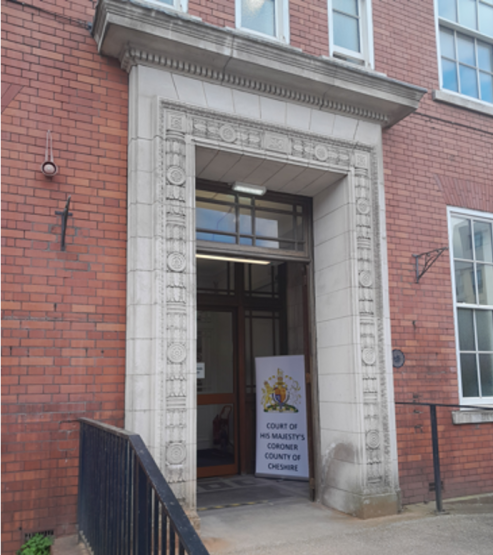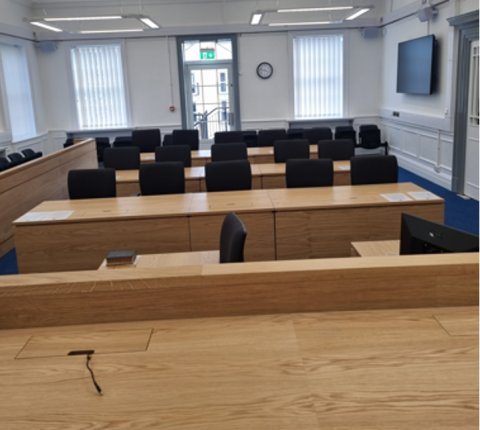Insight into how coroners place the deceased and bereaved at the centre of the inquest process
His Majesty’s Coroner is a Judge who investigates unnatural or violent deaths. The coroner is also required to investigate statutory reportable deaths, deaths in custody or detention, and deaths where the cause of death is unknown. The framework for a coronial investigation is to find answers to four statutory questions - who the deceased was, and how, where and when they have come by their death.
When a hearing is required, a fair and effective inquest is achieved in part by allowing for lessons to be learnt and further harm avoided. The investigative role comes with wide-ranging powers to decide what evidence is required to answer the four statutory questions and to secure evidence and information from a wide range of stakeholders.
Bereaved families represent the interests of the deceased, and generally share similar questions to those of the coroner about how a death has occurred. Uniquely, families may ask direct questions of witnesses during their evidence, even if they attend unrepresented. The coronial system provides a platform for intimate engagement in contributing to setting the scope of the inquest. The Cheshire region promotes equality, diversity and inclusion. This is consistent with the requirements of an effective investigation and recognises the vulnerabilities of all individuals and their impact upon individual engagement in the coronial process.

Whether or not the family read the coroner’s inquest bundle in advance, the coroner is able to ensure that all relevant matters are highlighted.
Coroners’ officers communicate with families and other stakeholders at the direction of the coroner. Families are kept informed of how the investigation will be managed including timeframes. The dates for opening the inquest and concluding the inquest are made available to the family/next of kin in advance. Stakeholders are required to deliver reports to HM Coroner in a timely manner to avoid delay.
Placing the bereaved at the centre of the inquest process is not to be viewed as a suggestion that families have a free rein over the coronial process. The coroner alone will make all decisions but may take into account the views of the bereaved, and other interested persons about the scope of the inquest, the witnesses to call and whether the witnesses should attend to give live evidence or have unchallenged evidence read to the record.
Legal aid is rarely available unless the death requires an enhanced investigation. The family should not feel disadvantaged by this as coroners work hard to protect the interests of the bereaved by asking relevant questions and ensuring that the process is thorough.
To assist families, coroners engage with organ donation requests. This is an important part of the coroner’s role and in keeping with the wishes of the bereaved. Where the coroner does not object to the donation, eight or more lives can be saved by one death.
In summary, the voices of bereaved families are heard and form part of an interactive approach to a fearless coronial investigation.

Keeping the bereaved at the centre of the coronial process
We speak to family and next of kin and tell them:
- That we have had the death of their family member referred to us
- We ask them what they know about the circumstances oof death
- We tell them what the referring agency have tod us about the death
- They are told what steps the coroner has decided to take to ascertain the cause of death
After the cause of death is known:
- The family is informed whether the investigation is to be closed or whether the case will proceed to an inquest
Should the case go to an inquest the family is informed:
- Of the date on which the inquest will be opened in public court
- Of the pre-inquest review inquest date and/or final inquest date
- Of the date when the coroner expects to receive statements and reports from witnesses, and therefore when the inquest bundle will be available.
- An explanation of the inquest process will be provided
- The bundle will be disclosed with a witness list for the inquest
- The coroner’s officer will explain the inquest process
- The family will have an opportunity to raise any concerns or questions they may have about the content of the witness statements ahead of the hearing
During the inquest:
- The family will have an opportunity to ask questions
- They can ask for comfort breaks when they require them
- Court support volunteers will be present at court to support them through difficult listening
- Coroners’ officers will be available to explain anything the family need to know about the process during and after the inquest
- The coroner will seek out and record as many of the facts concerning the death as the public interest requires